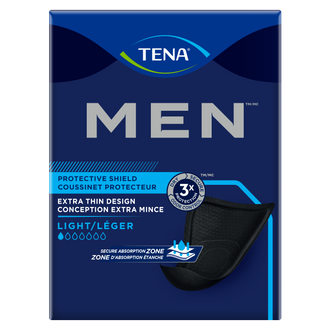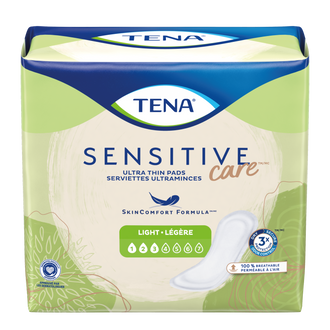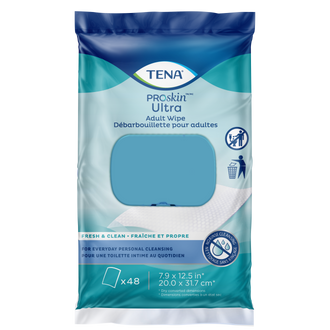Oct 25, 2024
Menopause can often feel like a big shift is happening in your life, but did you know that exercise could help to make this transition easier? A balanced workout routine could not only help with physical symptoms like weight gain, but also boost your mental health and overall well-being.1
We’ll dive into practical tips for creating a fitness plan that combines cardio, strength training, stretching, and relaxation—keeping you strong and energized.
Ready to discover how movement can be your best ally during menopause?
How to Stay Healthy and Active During Menopause
As you transition through menopause, fluctuating hormone levels could increase your risk for certain health problems, like osteoporosis or heart disease.1
Staying active during this time is considered one of the best things you could do for your physical and mental health.2 Combine a mix of cardio, strength training, and relaxation techniques like yoga or stretching to help you in managing your weight, boost your mood, and fight off menopausal symptoms.2
What’s more, incorporating exercises like Kegels can also be effective in reducing incontinence and unwanted leaks.3
Want to dive deeper? We've got more tips for you on staying healthy during this transition.
Tips to Get Started on a Menopause-Friendly Exercise Routine
Starting a fitness routine during menopause doesn’t have to feel complicated. The key is to go at your own pace, listen to your body, and pick exercises that you enjoy and suits your goals and fitness level.4
Whether you’re looking to lose weight, reduce stress, or just feel better overall, a balanced routine can help you get there.4
Cardio and Aerobic exercise
Cardio is a fantastic way to keep your heart healthy and reduce your risk for things like high blood pressure and stroke.4 Think of walking, swimming, or even group classes—whatever gets you moving and makes you feel good.
The best part? You can start slow and work your way up with a stepwise approach.4 Find something you enjoy, and it won’t even feel like exercise!
Strength and Resistance Training
Strength training is your best friend when it comes to staying strong and keeping your bones strong during menopause.4 Lifting weights, using resistance bands, or doing bodyweight exercises like squats or push-ups can help maintain your muscle mass and support bone health during menopause.4
Don’t worry about starting with heavy weights—rather begin light and gradually build up as you feel more comfortable. Every little bit helps!
Yoga
Yoga is a fantastic way to care for both your body and mind during menopause because it helps with flexibility and reduces anxiety.4 It’s gentle yet effective, making it a fantastic addition to your routine allowing you to cover all your bases with exercise variability.2
Stretching
Stretching is a simple but powerful tool for staying flexible, keeping your cartilage and bones strong5, and gives the body a chance to relax—especially if pain is an issue.4 Just a few minutes of stretching after each workout can help you stay limber and feel more comfortable in your body.
Start with easy stretches, and as you become more flexible, you can gradually increase the intensity. You’ll feel the difference.
What’s Your Menopause Exercise Goal: Weight Loss, Symptom Relief, or Both?
Whether you're aiming to shed a few pounds, manage menopause symptoms, or both, exercise can be tailored to fit your goals.4 The key is finding the right balance of activities that align with what you want to achieve. Let’s explore how different exercises can help you meet your specific menopause-related fitness goals.
Supporting Bladder Control
Many women experience bladder control issues during menopause, but pelvic floor exercises like Kegels can help strengthen the muscles that support bladder control.6 Focusing on these areas can reduce urinary incontinence and improve bladder control over time.6
To support your journey, TENA offers a range of products to provide comfort and protection while you work on your fitness goals. For more tips on bladder training techniques and bladder health, our blog has you covered!
Boosting Heart Health
Your risk of heart disease increases during this transition.2 Including cardio exercises like walking, swimming, or cycling are great to integrate into your workout routine because they strengthen your cardiovascular system and lower the risk of heart disease.4 Aim for activities that get your heart pumping, and your body will thank you in the long run.
Improving Sleep Quality
Struggling with sleep during menopause? You’re not alone.7 Exercise, particularly yoga and relaxation techniques, can help reduce anxiety4 , and may help sleep.
Reducing Depression and Lifting Mood
Menopause could bring mood swings and feelings of anxiety, but exercise has been shown to help reduce depression and lift your mood.2 Strength training and aerobic activities have been proven to help reduce your stress and anxiety levels and improve your mood.4
Keen for more tips on managing your emotional well-being during menopause? Our blog has lots of extra insights!
Increasing Bone Density
Menopause can lead to a decrease in bone density, but weight-bearing and resistance exercises, like weightlifting or using resistance bands, are excellent for maintaining or even increasing bone strength.4 Keeping your bones strong could help reduce the risk of osteoporosis, making resistance exercises a crucial part of your fitness routine.4
Preventing Menopause-Related Weight Gain
If weight gain is a concern, a mix of cardio and strength training is a good plan. Cardio helps burn calories, while strength exercises build muscle and keep your metabolism running strong, helping you to avoid the dreaded menopausal weight gain.4
For more on weight loss strategies, we’ve got great insights on losing menopause belly fat and boosting weight loss through nutrition!
Incorporating Relaxation Exercises
Relaxation exercises like yoga, stretching, or meditation are not only good for your body—they also help keep your mind balanced and can reduce some of the anxiety that often accompanies menopause.4 A few minutes a day can go a long way in keeping both your mind and body at ease.
Conclusion
Taking a holistic approach to exercise during menopause is really the way to go if you want to feel your best. By mixing in cardio, strength training, and relaxation exercises, you can tackle those pesky symptoms and boost your overall quality of life.
Regular physical activity could help with everything from managing weight and lifting your mood to keeping your heart and bones strong.
Just remember to listen to your body and pick exercises that fit your personal goals—whether that’s symptom relief, weight loss, or just feeling more energized and empowered. Embrace this journey, and let movement be your ally during this transformative stage of life! You've got this!
References
1. NIH. ‘Staying Healthy During and After Menopause’. 2024. Accessed 23 September 2024. Available from: https://www.nia.nih.gov/health/menopause/staying-healthy-during-and-after-menopause
2. Penn Medicine. ‘Why You Should Exercise Your Way Through Menopause’. 2021. Accessed 23 September 2024. Available from: https://www.lancastergeneralhealth.org/health-hub-home/2021/february/why-you-should-exercise-your-way-through-menopause
3. NHS. ’10 ways to stop leaks’. 2023. Accessed 23 September 2024. Available from: https://www.nhs.uk/conditions/urinary-incontinence/10-ways-to-stop-leaks/#:~:text=Do%20daily%20pelvic%20floor%20exercises,stopping%20yourself%20peeing%20and%20farting.
4. NIH. ‘Exercise beyond menopause: Dos and Don’ts’. 2011. Accessed 23 September 2024. Available from: https://www.ncbi.nlm.nih.gov/pmc/articles/PMC3296386/
5. NIH. ‘High physical activity level may reduce menopausal symptoms. 2019. Accessed 23 September 2024. Available from: https://www.ncbi.nlm.nih.gov/pmc/articles/PMC6722698/
6. Healthline. ‘Menopause and Urinary Incontinence’. 2019. Accessed 23 September 2024. Available from: https://www.healthline.com/health/menopause/urinary-incontinence
7. John Hopkins Medicine. ‘How Does Menopause Affect My Sleep?’. 2024. Accessed 27 September 2024. Available from: https://www.hopkinsmedicine.org/health/wellness-and-prevention/how-does-menopause-affect-my-sleep







